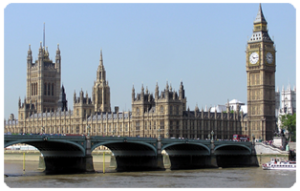 BASC has submitted a detailed response to the Environment, Food and Rural Affairs (EFRA) Committee inquiry into tourism’s role in supporting rural growth in England.
BASC has submitted a detailed response to the Environment, Food and Rural Affairs (EFRA) Committee inquiry into tourism’s role in supporting rural growth in England.
The UK’s largest shooting organisation has drawn on national research and 11 case studies to evidence the social and economic benefit of shooting tourism for rural businesses and communities.
Among the case studies is the Country Sports South West England project, managed by BASC, which stimulated investment of £666,632 in the country sports sector from 2010 to 2013. A further example quoted is research by the Greater Exmoor Shoots Association which shows that shooting on Exmoor contributes an estimated £32.5 million annually to the UK economy and provides an economic return from upland farms and woods where farming margins are thin and alternative sources of income are hard to find.
Dr Conor O’Gorman, BASC policy development manager, said: “The impact of shooting-related tourism on rural growth is measurable across England. Our evidence shows that investing in the marketing and development of shooting destinations should become the cornerstone of any future plans to boost the rural economy.”
“The submission deadline is September 6, so there is still time for rural businesses, such as hotels and pubs, to write in to government to share their experiences of shooting tourism as further case studies to the inquiry”.
BASC vice chairman John Thornley OBE said: “People who shoot are prepared to travel long distances to experience quality shooting experiences across rural England. The money they spend on food, accommodation, fuel and other local goods and services is a vital source of income for rural businesses, especially during the tourism ‘off season’.”
The Value of Shooting Report reveals that shooting supports the equivalent of 74,000 full-time jobs. People who shoot spend £2.5 billion each year on goods and services, bringing income into rural areas, particularly in the low-season for tourism. More than four million visitor-nights are generated by shooting every year while shooting directly supports the equivalent of 5,200 full-time jobs in the food and accommodation sector. The research shows that an established shoot generates local economic benefits for businesses in a radius of up to fifteen miles.
More information on the EFRA inquiry is available here.
